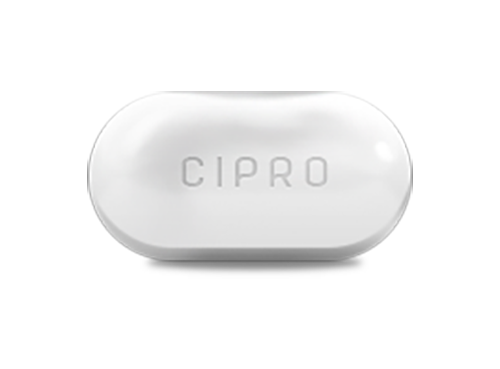Cipro Product Description
Drug Uses
Cipro is a broad-spectrum antimicrobial antibiotic effective against most gram-positive and gram-negative aerobic bacteria. It works by exerting a bactericidal effect on microbial cells both at rest and during growth phases. Bacterial resistance to Cipro develops gradually, primarily due to genetic mutations that reduce the permeability of the cell membrane. This slow resistance development makes Cipro a reliable choice for treating various infections.
Cipro is prescribed for children, adults, and elderly patients to treat the following conditions:
- Urinary tract infections
- Bone and joint infections
- Intra-abdominal infections
- Genital infections
- Upper respiratory tract infections
- Lower respiratory tract infections
- Skin and soft tissue infections
After oral administration, the antibiotic reaches its peak concentration in the blood within 1–1.5 hours. Food intake has minimal impact on its absorption or bioavailability, ensuring consistent effectiveness.
Dosage and Administration
The dosage of Cipro is determined individually, considering the type of infection, patient tolerance, and specific characteristics. Treatment duration depends on the severity of the disease and the patient’s bacteriological response.
For adults, the standard dosage ranges from 250 mg to 750 mg per dose. In pediatric cases, the dose is calculated based on body weight, typically between 10 mg and 20 mg per kg. It is essential to adhere to the prescribed dosage regimen for optimal therapeutic outcomes.
Missed Dose
If you miss a dose of Cipro, take it as soon as you remember. However, if it is nearly time for the next scheduled dose, skip the missed one and continue with the regular dosing schedule. Do not double the dose to compensate for a missed one.
Important Information and Precautions
Cipro is not effective against gram-positive anaerobic bacteria such as Streptococcus pneumoniae, making it unsuitable for treating pneumococcal infections. During treatment, patients are advised to consume plenty of fluids to minimize the risk of crystalluria. Prolonged or repeated use may lead to bacterial resistance or fungal overgrowth.
Storage
Store Cipro in a dry, warm place, away from direct sunlight and out of children’s reach. The storage temperature should not exceed 30°C to maintain its effectiveness.
Safety Information and Warnings
Clinical studies indicate that Cipro may increase the risk of tendinitis and tendon rupture, especially in older adults and individuals with a history of tendon disorders. The drug can also cause severe hepatotoxicity, including liver necrosis. If symptoms of hepatitis occur, such as jaundice, dark urine, or abdominal pain, discontinue use immediately and seek medical attention.
Disclaimer
The information provided here is for educational purposes only and does not replace professional medical advice. Always consult a healthcare provider before starting or stopping antibiotic therapy. The content is not intended to cover all possible uses, directions, precautions, or adverse effects related to Cipro.
Side Effects
Cipro is generally well tolerated, but some patients may experience mild to moderate side effects, including:
- Nausea, diarrhea, and vomiting
- Skin rash and itching
- Headache, dizziness, or confusion
In rare cases, more severe reactions may occur, such as loss of appetite, abdominal pain, fatigue, tremors, or fever. Pediatric patients aged 1 to 17 years may be more prone to indigestion, fever, or asthma-like symptoms. Around 5% of patients may need to discontinue treatment due to adverse effects. Contact your healthcare provider if you experience any concerning symptoms.









Reviews
There are no reviews yet.